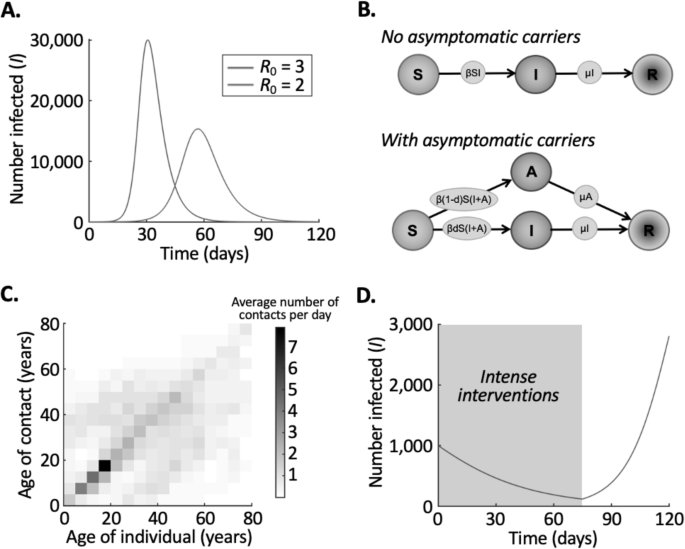Introduction
In the realm of decision-making, mental models play a vital role in shaping our thought processes and influencing the choices we make. One such mental model that often creeps into our thinking is the Epidemic Models. This concept refers to our tendency to view ideas, beliefs, and behaviors as contagious epidemics, which can lead us astray and hinder rational decision-making. In this blog post, we will explore the Epidemic Models mental trap, its prevalence in our daily lives, its consequences on personal, business, and public decision-making, the psychological biases that contribute to it, and practical strategies to avoid succumbing to this fallacy.
Defining the Epidemic Models Mental Trap
The Epidemic Models mental trap revolves around the notion that ideas, beliefs, and behaviors can spread like an infectious disease, rapidly gaining momentum and influence. It is anchored in our psychological predisposition to imitate and conform to the actions and beliefs of others. This mental model often emerges from our deep-rooted desire for social acceptance and the fear of missing out on something that seems popular or trendy.
Relevance of Epidemic Models in Decision-Making
The impact of the Epidemic Models mental trap is far-reaching, affecting our decision-making processes across various domains of life. Whether it’s personal life decisions, business scenarios, or public policy-making, succumbing to this fallacy can lead to irrational choices that conflict with our best interests.
Examples of the Epidemic Models Mental Trap
Personal Life Decisions:
Imagine a scenario where an individual decides to invest a significant portion of their savings into a particular cryptocurrency solely because they witnessed a surge in its popularity. They are influenced by the belief that this trend will continue indefinitely and that everyone around them is benefiting from it. Unfortunately, their decision is based on the assumption that the popularity and growth of the cryptocurrency will follow an epidemic-like trajectory. However, this mindset neglects essential factors such as market volatility, financial stability, and long-term prospects, potentially leading to substantial financial loss.
Business Scenarios:
In the business world, the Epidemic Models mental trap can manifest when companies blindly adopt new technologies or strategies simply because they are perceived as the latest trend. For instance, a retail business may feel compelled to invest heavily in creating a mobile app simply because their competitors have done so, without fully evaluating its compatibility with their business model or understanding their customers’ needs. By succumbing to this fallacy, businesses risk allocating resources to initiatives that may not align with their goals or provide tangible benefits, ultimately undermining their long-term success.
Public Policy-Making:
Epidemic Models can also influence public policy decisions. Governments and policymakers may be swayed by the fear of an epidemic-like spread of a particular social issue or behavior, leading them to implement reactive policies without fully understanding the underlying causes or potential unintended consequences. For instance, the introduction of strict legislation to combat a sudden increase in juvenile crime might overlook underlying socioeconomic factors and the need for comprehensive long-term solutions, resulting in ineffective policies that fail to address the root causes.
Psychological Biases and Underpinnings of Epidemic Models:
Several psychological biases contribute to the Epidemic Models mental trap. The Bandwagon Effect, which reflects our tendency to adopt beliefs or behaviors simply because others do, plays a significant role. Social proof, conformity, and the fear of missing out (FOMO) further reinforce our susceptibility to this fallacy. Moreover, our cognitive biases, such as availability heuristic (relying on easily accessible information) and confirmation bias (seeking evidence that confirms our pre-existing beliefs), can intensify our reliance on the Epidemic Models mental trap.
Strategies to Avoid Succumbing to Epidemic Models
Develop Critical Thinking Skills: Enhancing your critical thinking skills can empower you to question prevailing trends, evaluate evidence objectively, and make informed decisions. Encourage skepticism and seek diverse perspectives before jumping on the bandwagon.
Conduct Independent Research: When faced with a popular belief or trend, conduct thorough research from reputable sources to obtain a comprehensive understanding of the subject. Look beyond surface-level information and critically analyze the underlying factors and potential consequences.
Reflect on Personal Values and Goals: Regularly reflect on your personal values, aspirations, and long-term goals. Align your decisions with these intrinsic factors rather than succumbing to external pressures. Recognize that popularity does not equate to long-term success or fulfillment.
Seek Diverse Perspectives: Engage in conversations with individuals who hold different viewpoints. This helps challenge your assumptions, broadens your understanding, and mitigates the echo chamber effect that often accompanies the Epidemic Models mental trap.
Awareness of Cognitive Biases: Educate yourself about common cognitive biases that can cloud judgment and influence decision-making. Recognizing these biases can help you approach situations with greater objectivity and make more rational choices.
Conclusion
The Epidemic Models mental trap represents a common pitfall in decision-making, anchored in our tendency to view ideas, beliefs, and behaviors as contagious epidemics. By succumbing to this fallacy, we may make irrational decisions that contradict our best interests. Being aware of the Epidemic Models mental trap and understanding its underlying psychological biases empowers us to make more rational choices. By cultivating critical thinking skills, conducting independent research, reflecting on personal values and goals, seeking diverse perspectives, and being mindful of cognitive biases, we can avoid falling prey to this mental trap and make decisions that align with our true desires and aspirations. Embracing rational decision-making not only benefits us individually but also contributes to a more informed and progressive society.
